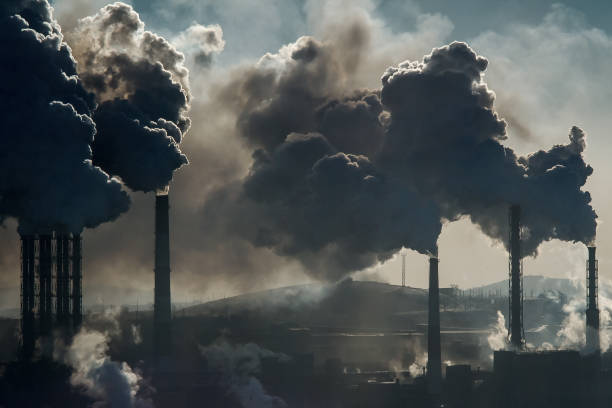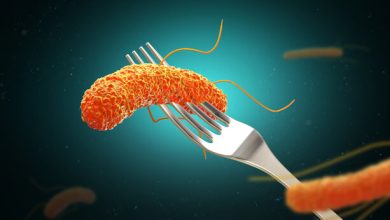Air Pollution; Causes and Prevention

Fight air pollution. Eat plenty of fruits and vegetables. Get regular exercise. Don’t smoke. Control high blood pressure, diabetes, and cholesterol. These are age-old words of wisdom for a healthful life. But when was the last time your doctors told you to avoid exposure to pollution? Accumulating evidence about the impact of pollution on our health suggests that this should be another recommendation — though it wouldn’t be easy to follow.
What is pollution?
A simple description of pollution is anything introduced into the environment by humans that harms human health or ecosystems. As such, there are many kinds of pollution — in the air, water, and soil — which can take the form of gases, heavy metals, chemicals, bacteria, and even noise.
Let’s focus here on air pollution. Outdoor air pollution includes the burning of fossil fuels (coal, gas, oil) and wildfires. These generate noxious gases, smog (created by ground-level ozone), and soot (fine particles) that are harmful to breathe. Among the contributors to indoor air pollution are fireplaces and home cookstoves that use gas, coal, or biomass fuels such as wood or crop waste that are sometimes used in low-income countries.
Air pollution is a complex and vicious cycle. Its toxic effects are worsened by increased temperatures. Higher temperatures in turn increase the risk of uncontrolled wildfires and the use of energy (think of air conditioners). Both can release greenhouse gases that further drive climate change, which in turn raises temperatures and feeds other extreme weather around the globe, and the ever-worsening cycle that continues to repeat.
In the United States, air pollution has improved quite a bit since the passage of the Clean Air Act in 1970. However, some air pollutant levels have risen in the last few years, and air pollution continues to have serious ongoing health impacts, both nationally and globally.
How does air pollution affect your health?
Numerous studies over the years have repeatedly shown that increased outdoor air levels of fine particulate matter correspond to increased hospitalizations for heart disease, stroke, diabetes, pneumonia, chronic obstructive pulmonary disease exacerbation, and other serious health problems. Both long-term exposure and short-term exposure seem to matter.
A study published this year looked at global models of pollution levels and risk assessments of the world population over 14 years. It ties fossil fuel combustion alone to nearly nine million premature deaths worldwide in 2018 — that’s one in five deaths — including more than 350,000 in the US. Most of these deaths are due to heart attacks and strokes.
Who is especially vulnerable to the potential effects of air pollution? Anyone who is elderly, young, or pregnant, and anyone with underlying diseases such as a heart or a lung condition. Additionally, people living in low-income communities, which are often situated near industrial plants or high-traffic areas, are disproportionately affected. However, you can keep an eye on your air conditions with a good quality co2 Monitor.
Dangers of Air Pollutions:
Many people know that the air we breathe is important, but why? Air pollution may sometimes be invisible, but it can leave a big imprint on human health. In fact, evidence shows that air pollution can impact human health in more ways than previously imagined.
Two types of pollution are dominant in the U.S.: ozone and particle pollution. Both of these pollutants are tracked in the American Lung Association’s annual “State of the Air” report. These two pollutants threaten the health and lives of millions of Americans. How? Here are the “Terrible 10” health risks from breathing polluted air:
-
Premature death:
Science shows that both short-term and long-term exposure to unhealthy air can shorten your life and lead to premature death. Medical experts have known about this risk for decades —remember our blog about the great smog event depicted in “The Crown”?
-
Asthma attacks:
Breathing ozone and particle pollution can lead to increased asthma attacks, which can result in visits to the emergency room and hospital admissions, not to mention missed work and school.
-
Cardiovascular disease:
Air pollution can increase the risk of both heart attacks and stroke.
-
Lung cancer:
In 2013, the World Health Organization determined that particle pollution can cause lung cancer, which is the leading cause of cancer-related death in the U.S.
-
Developmental damage:
Exposure to air pollution can slow and stunt lung development in growing children, harming their health now and reducing their lung function as adults.
-
Susceptibility to infections:
Air pollution increases the risk of lung infections, especially in children.
-
Worsened COPD symptoms:
Exposure to air pollution can make it even harder for people with chronic obstructive pulmonary disease (COPD) to breathe. Severe symptoms can lead to hospitalization and even death.
-
Lung tissue swelling and irritation:
Even people with healthy lungs are susceptible to irritation and swelling. For those living with chronic lung diseases, such as asthma and COPD, these effects can be especially harmful.
-
Low infant birth weight:
Some studies show exposure to air pollution may increase the risk of low infant birth weight and infant mortality.
-
Wheezing, coughing, and shortness of breath:
Like many of the other conditions in this list, these can be caused by both long-term exposure and short-term exposure to high levels of air pollutants.
The list doesn’t end here. For example, new research is uncovering links between the air we breathe and mental health concerns. The more scientists look at this invisible threat, the more they find that air pollution poses a serious threat to our nation’s health.
To fight all this off, use a commercial grade air purifier.
What can you do to reduce the harms of pollution?
Use the air quality index (AQI) as a guide to help you.
The EPA developed the AQI to measure air quality. You can track it specifically for where you live at AirNow. When the AQI is in unhealthy zones, try to avoid outdoor activities, especially near traffic-congested areas. Stay indoors and close the windows while using air conditioners and fans when it’s hot, if possible, to keep you from getting overheated. Or, when you go outside, wear a mask: cloth masks and surgical masks may help with larger particles, but only certain masks like N95s will filter fine particles. It also helps to change your clothes upon your return home.
Get the best hepa air purifier for covid Australia.
Be thoughtful about transportation.
Think about healthier alternatives to driving whenever you can. Buy local produce, if this is an option for you, to further cut down on global shipping and transportation that contribute to air pollution. And when driving, don’t idle your car (note: automatic download), which is estimated to waste three billion gallons of fuel and generate 30 million tons of the major greenhouse gas carbon dioxide per year in the US.
Change out your gas stove.
When it is time for a new stove, choose induction or electric stoves over gas stoves. Induction cooktops not only avert indoor pollution but also use the least amount of energy.
Consider using air purifiers.
Although they do not remove all pollutants, they can improve indoor air quality. Choose an air purifier that has a high clean air delivery rate (CADR) matched for the size of your room.
Replace filters.
Changing your air conditioner and air purifier filters regularly will improve your air quality and reduce energy use.
Promote clean, renewable energy.
Whether it’s opting for a 100% renewable energy plan or voting for leaders that prioritize renewable energy, taking steps to decrease fossil fuel use has the double benefit of combatting climate change and air pollution, ultimately working toward a sustainable future with a healthier planet and a healthier you.
Our nation has much more pollution to clean up. The Lung Association works to ensure that the air we breathe is clean and safe. Learn more about how polluted air can make you sick and how we are fighting to keep our air and nation healthy.



